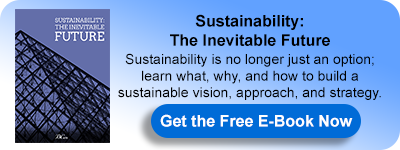What is Sustainability
Our economy has been developed in a society of mass-production, mass-consumption, and mass-disposal for ages. As a result, the global environment has undergone a drastic change, which has had a major impact on society and economic activities. We cannot take for granted that businesses can be continued to conduct on healthy earth and society. The resources from the earth are finite, and there is a need to shift from a linear economic model of "take, make and dispose" to a circular economy model of "reduce, reuse, and recycle."
Businesses are increasingly understanding the need for sustainability as a result of evolving global attitudes. Future economic activities are required to embrace sustainable business practices to resolve environmental, economic, and social issues toward the circular economy.
Global Framework for Sustainability and the Expectations toward Companies
Sustainability is defined as finding ways to make sure that current human activity will not burden our future and future generations and not deplete natural systems as humanity is dependent upon them. This means that sustainability requires responsibility amongst people of current and future generations. The three pillars that support it are; environmental, social and economic considerations.
The Paris Agreement was adopted by 196 Parties at COP 21 in 2015 as an international agreement for combating global warming. In the same year, the Sustainable Development Goals (SDGs) were adopted at the United Nations Summit as guiding strategies to move towards a sustainable society.
How businesses are evaluated is changing, which can be seen in the growth of sustainable investing. In the ESG investment, corporate value is measured based on awareness of and efforts to address environmental and social issues, and investment destinations are selected based on those performances. There has been an increase in investment in companies that are actively tackling environmental and social issues, and an increase in the number of companies that withdraw from investments or stop trading with companies that are known for harming the environment, society, and public health, such as fossil fuels, coal, oil, and weapons.
The business environment has drastically changed over the past few years. The impact is not limited to listed companies but extends to unlisted companies and small organizations. When a client is engaged in sustainable management and/or taking sustainable procurement standards, the whole supply chain of companies are required to meet those sustainability standards.
For more about this topic, download our latest book " Sustainability: The Inevitable Future " for FREE:
